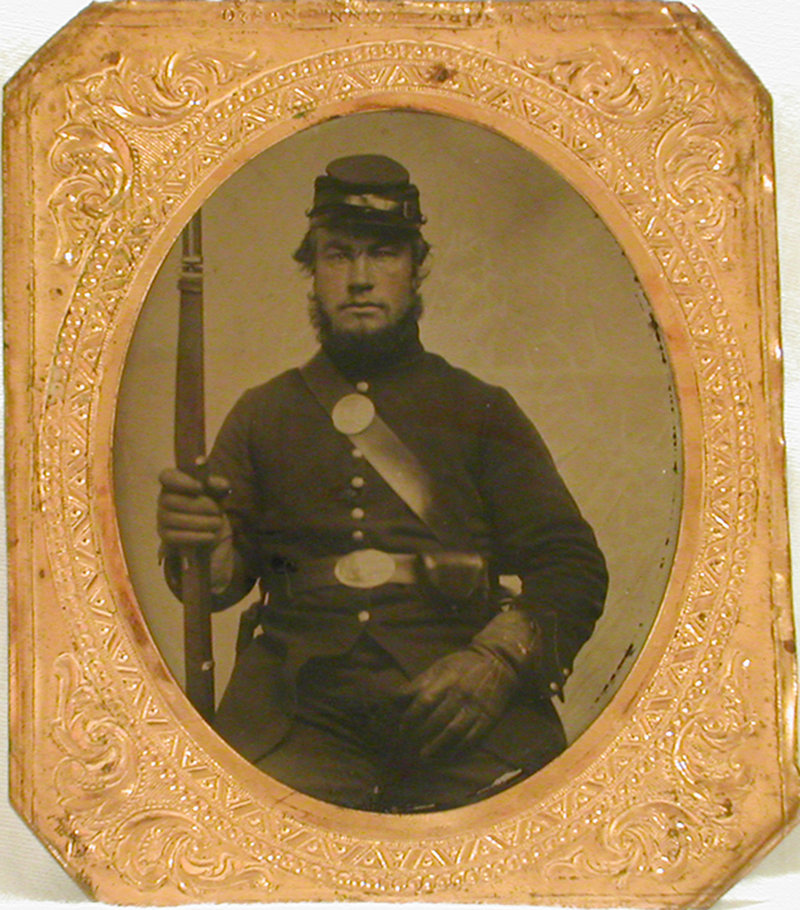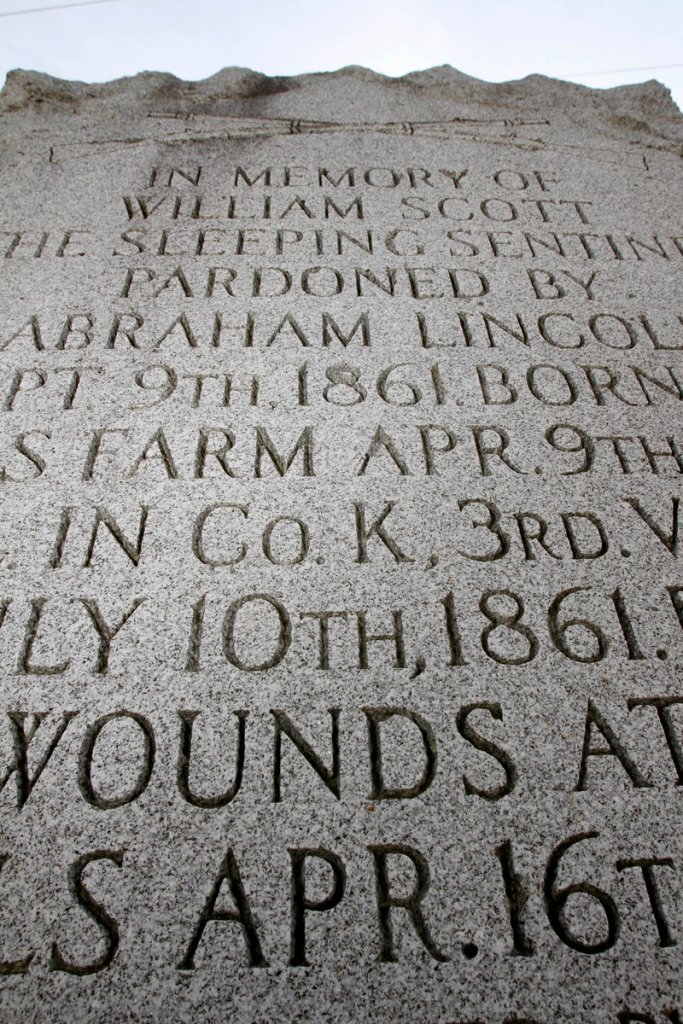GROTON, Vt. — Some historians say Vermont’s “sleeping sentinel” was the most famous private soldier to serve in the Civil War and his death 150 years ago Tuesday from battle wounds is being marked to help commemorate the state’s role in the war that raged from 1861-1865.
William Scott was the 21-year-old Groton farm boy who joined the 3rd Vermont Volunteer regiment early in the Civil War and was pardoned by the Union Army commander as Scott was about to be shot by a firing squad for falling asleep on guard duty outside Washington.
In a case that drew the attention at the time of President Abraham Lincoln and a public that was eager for inspiring stories of heroism, Scott’s story has been told and retold to generations of Vermont school children: Scott, who had been sentenced to death at a court martial as a way to impose discipline in the still rag-tag Union Army, was pardoned because he had stayed awake the night before he fell asleep on duty to help care for a sick comrade.
Less than a year after Scott’s death, President and Mrs. Lincoln supposedly attended a recitation at the White House of “The Sleeping Sentinel,” a poem about Scott. During the war, the same poem, written by Francis De Haes Janvier, was recited many times at venues throughout the North.
Now, a section of U.S. Route 302 from Barre to the New Hampshire border is named the William Scott Highway and a granite monument stands by the side of the highway where the Scott family farmhouse once stood.
“He was famous throughout the country. He was the most famous private in the Union armies, probably in the entire Civil War. That story got a lot of play,” said historian Howard Coffin, who has written extensively about Vermont’s role in the Civil War.
The monument reinforces some of the myths that have sprung up from Scott’s case. It says Scott was pardoned by Lincoln, but Scott was pardoned by Union Army commander Gen. George McClellan, Coffin said.
Scott was among the first of Vermont’s soldiers to enlist after the call went out for volunteers to help fight the war.
It was in September 1861 when the well-liked Scott fell asleep while guarding the approaches to Washington. At the time, falling asleep on guard duty was a capital offense. A court martial made up by Vermont soldiers found Scott guilty and ordered that he be shot. Almost 200 soldiers signed a petition asking that Scott be pardoned.
Seven months after his pardon, Scott was at Lee’s Mill in Virginia when he and his comrades were ordered to charge a Confederate position. Scott was hit several times, and died the next day.
Scott was one of about 40 Vermont soldiers killed at Lee’s Mill, the first time Vermont soldiers took significant casualties during the war.
The poem, first published in 1863, tried to capture the tenor of the times.
“While yet his life-blood ebbed away through every gaping wound … While yet his voice grew tremulous, and death bedimmed his eye … He called his comrades to attest, he had not feared to die!”
Send questions/comments to the editors.




Success. Please wait for the page to reload. If the page does not reload within 5 seconds, please refresh the page.
Enter your email and password to access comments.
Hi, to comment on stories you must . This profile is in addition to your subscription and website login.
Already have a commenting profile? .
Invalid username/password.
Please check your email to confirm and complete your registration.
Only subscribers are eligible to post comments. Please subscribe or login first for digital access. Here’s why.
Use the form below to reset your password. When you've submitted your account email, we will send an email with a reset code.